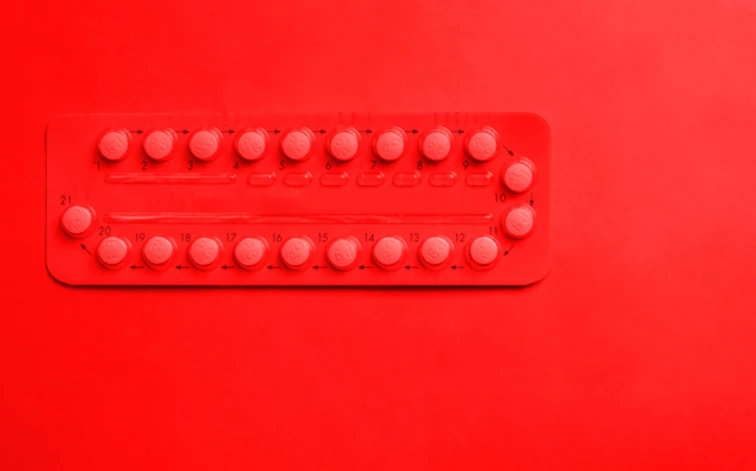Understanding the menstrual phase: a gentle guide to your body’s natural rhythm

The menstrual cycle is a pretty fascinating journey that’s as unique as each of us! While it can certainly come with its challenges, it's also a regular adventure of shifting hormones, emotions, and physical changes that many women and people with periods experience every month. Think of the menstrual phase as a time for rest and renewal—a mini retreat where your body takes a moment to recharge. By tuning into what’s happening during this phase, both physically and emotionally, you can better embrace it with a sense of understanding and self-care.
What’s happening during the menstrual phase?
The menstrual phase marks the beginning of the menstrual cycle, typically spanning from days 1 to 5. It’s during this time that the body sheds the uterine lining, resulting in menstruation, more commonly known as your period.
This process is triggered by a drop in oestrogen and progesterone. These hormones are crucial throughout the cycle, but their decrease during this phase signals the body to release the uterine lining; this shedding is what we experience as menstrual bleeding. The amount of blood loss during this time varies but typically ranges between 30-40 millilitres, but heavier periods can exceed this.
As the body goes through this natural process, you might experience a range of signs and symptoms. Cramping is common (we know the feeling!), caused by the uterus contracting to expel its lining. Fatigue, mood swings, and other PMS symptoms like bloating or headaches may also be lurking around as the body adjusts to these hormonal changes.
How the menstrual phase might make you feel
Physically, the menstrual phase can be a mixed bag. On the one hand, it can bring a sense of relief as premenstrual syndrome (PMS) symptoms subside with the onset of menstruation. On the other, the symptoms mentioned above can make this phase rather uncomfortable. Cramps, low energy, and even “period poo” (yep, a real phenomenon where hormonal changes lead to increased bowel movements!) can all contribute to feeling less than your best.
Emotionally, this phase can also be a time of vulnerability and introspection. Many women and people with periods report feeling more inward-looking, a little withdrawn, and in need of rest. This emotional response isn’t just in your head; it’s a natural consequence of the hormonal shifts taking place in your body. The drop in oestrogen and progesterone can lead to a temporary dip in mood, making it a time when self-care becomes especially important (did someone say bubble bath?!).

Self-care tips for menstruation
Menstruation can be seen as a time of renewal for your body, so it might be a good idea to listen to it and take things easy. Whether it’s reducing your workload, indulging in extra sleep, or simply taking more breaks, prioritising rest can help you navigate menstruation more comfortably.
While strenuous activities might be the last thing on your mind, gentle exercises like yoga or walking can help alleviate cramps and improve your mood. Meditation, deep breathing exercises, or even just a few moments of quiet reflection can help calm your mind and body. This phase can be an opportunity to be gentle with yourself, embracing a slower pace and tuning in to what you need.
Staying hydrated is also key, as your body is losing fluids . Warm herbal teas can be soothing and eating nourishing foods rich in iron and magnesium can also support your body during this time. Dark leafy greens, nuts, seeds, and lean proteins are all great choices.

Insights into the menstrual phase
- Natural painkillers: Your body releases endorphins during menstruation, which are natural painkillers. Pretty handy! However, for many people, these endorphins aren’t always enough, leading to the use of additional pain relief methods during menstruation.
- Menstrual blood myths: In ancient times, menstrual blood was believed to have some pretty crazy magical powers, such as spoiling wine and driving dogs mad!
- Skin changes: Many people notice changes in their skin during menstruation. The skin can become oilier or more prone to breakouts due to hormonal fluctuations.
- Moon connection: Historically, menstrual cycles were thought to be linked to the phases of the moon, as both cycles average around 28 days. Even if it’s not scientifically proven, this idea can instil a nice sense of power and ‘oneness’ with nature for some.
- Menstrual synchronicity: The idea that women living together synchronise their cycles is known as the McClintock effect. While it’s a popular belief, scientific debate continues about its validity.
- Cramps evolution: As per a study, period pain, or dysmenorrhoea, are considered more common now than in historical times when women had more frequent pregnancies and fewer periods.
- Heavy menstrual bleeding: Also known as menorrhagia, heavy menstrual bleeding is a condition where a woman loses more than 80 millilitres of blood during her period or has periods lasting longer than seven days. This can lead to symptoms like fatigue and iron-deficiency anaemia.
Contraception and the menstrual phase
For those using the combined oral contraceptive pill, the menstrual phase might look a little different. This pill works by maintaining consistent hormone levels, preventing the drop in oestrogen and progesterone that triggers menstruation. Instead, users experience a “withdrawal bleed” during the placebo pill days or pill break, which mimics a period but isn’t a true menstrual cycle.
Unlike the combined oral contraceptive pill, which contains both oestrogen and progesterone, the mini pill contains only progesterone. This can lead to lighter, less predictable periods, or in some cases, periods may become irregular or stop altogether , as the mini pill primarily works by thickening cervical mucus and thinning the uterine lining rather than suppressing ovulation.
Understanding the relationship between contraception and your cycle can help you make informed choices about your reproductive health and how you manage your menstrual phase.

Key takeaways
Menstruation serves as a reminder of the cyclical nature of our bodies, but it's important to recognise that this time can be vastly different for everyone. While some may find it a period of rest and renewal, others may experience heavy bleeding or painful cramps that can be quite challenging. If you find that your periods are particularly difficult, don’t hesitate to speak with a healthcare professional. They can help you navigate your symptoms and explore options for relief!





